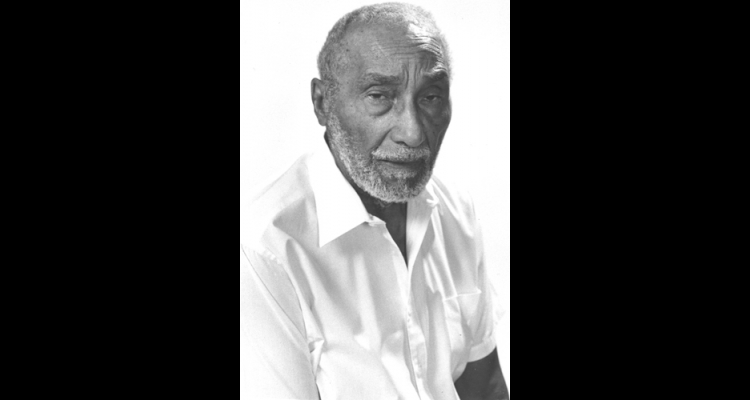Dr. James B. McMillan: Committed to Freedom
A month after Dr. James B. McMillan's death on March 20, 1999, the Nevada legislature passed Assembly Concurrent Resolution No. 49 on April 23 with the fitting conclusion that "Dr. James B. McMillan will long be remembered for his commitment to the struggle for civil rights and racial equality." Those few words were a fitting tribute to and acknowledgement of a life totally devoted to challenging the discriminatory practices of the city of Las Vegas, known as "The Mississippi of the West," and the racial policies of the entire state of Nevada.
McMillan was born in Aberdeen, Mississippi, on January 14, 1917. He was five years old when his protective grandfather died and Mississippi's scary racial environment caused his family to move to Chicago, Illinois, where they lived a short time before moving to Detroit, Michigan. He attended primary school there and matriculated at the University of Michigan and later at the University of Detroit, where he was recognized as a young freedom fighter playing on the football team as the first Black teammate. He earned his Doctor of Dental Surgery degree from Meharry Medical School of Dentistry, the country's first Black medical college. McMillan served in the Army Dental Corps during World War II and the Korean War.
Between military stints McMillan practiced dentistry in Detroit where he met Dr. Charles I. West. When West, Nevada's first Black doctor, moved to Las Vegas in 1954, he informed McMillan that he should expect a monumental change in locations once he was released from the military. West said that instead of returning to Detroit, McMillan should hasten to Las Vegas to become Nevada's first Black dentist. West had packed both offices and moved all of the equipment to Las Vegas during his initial move from Detroit.
McMillan arrived in Las Vegas in the summer of 1955 after a long sight-seeing trip that included a tour of the Grand Canyon in the company of his daughter, Jamilla, son, John, Jr., and Mickie, his fiancee. He and Mickie were married in a poolside ceremony at the brand-new, although short-lived, Moulin Rouge Hotel and Casino.
A daily long line of patients awaited the new "tooth doctor" and his passion for civil rights plunged him into the local struggle for an even playing field for Blacks. He became the president of the local branch of the National Association for the Advancement of Colored People (NAACP), which soon gave him statewide recognition for the successful quest to desegregate the town. Despite the myriad activities in which Dr. McMillan was engaged, he insisted upon furthering his vocation of dental medicine. He was the first Nevada dentist to introduce and perform dental implants, having taken courses in the revolutionary dental science advancement in Puerto Rico and later, in 1966, in Paris, France. Governor Mike O'Callaghan appointed him to the Nevada Board of Dental Examiners in 1971.
As NAACP president, Dr. McMillan ordered research into the establishment of a local Black Chamber of Commerce. He later served as president of the chamber. Sarann Knight Preddy had been the first president of the organization after Katherine Joseph, an NAACP Executive Board member, completed the research, investigation, and initial planning. The Black Chamber is now known as the Urban Chamber of Commerce.
In addition to several stints as the leader of the local NAACP, McMillan served as a member of the Clark County School Board of Trustees from 1992 to 1996. He has been honored and memorialized by the district's naming committee by having an elementary school named for him. He was founder of the Las Vegas Human Rights Commission and was the first Black person to serve on the State Democratic Central Committee. As an active lobbyist for equal Black representation, he advocated better housing, employment, transportation of seniors, and overall better treatment of and for minorities locally and statewide. His massive voter registration drives, instituted under the auspices of the NAACP, encouraged Blacks to vote in order to bring about enlightened legislation.
Most of all, he is remembered for fighting successfully for the integration of public accommodations in the city of Las Vegas and on the famed "Strip" in 1960. Dr. McMillan, serving as NAACP president, threatened a march on the Strip if Blacks were not allowed to enter the front doors of the hotels. To avert the adverse nationwide publicity, local casino owners capitulated and opened the Strip to Black customers on March 26, 1960. Later, McMillan threatened another march and boycott, prompting Strip and downtown casino operators to agree to hire Black employees in positions other than as porters and maids. It was McMillan's passion for equal rights and his mental toughness that allowed the city to be integrated well before the national legislation in 1964 and 1965.
Article Locations
Related Articles
None at this time.
Further Reading
None at this time.
